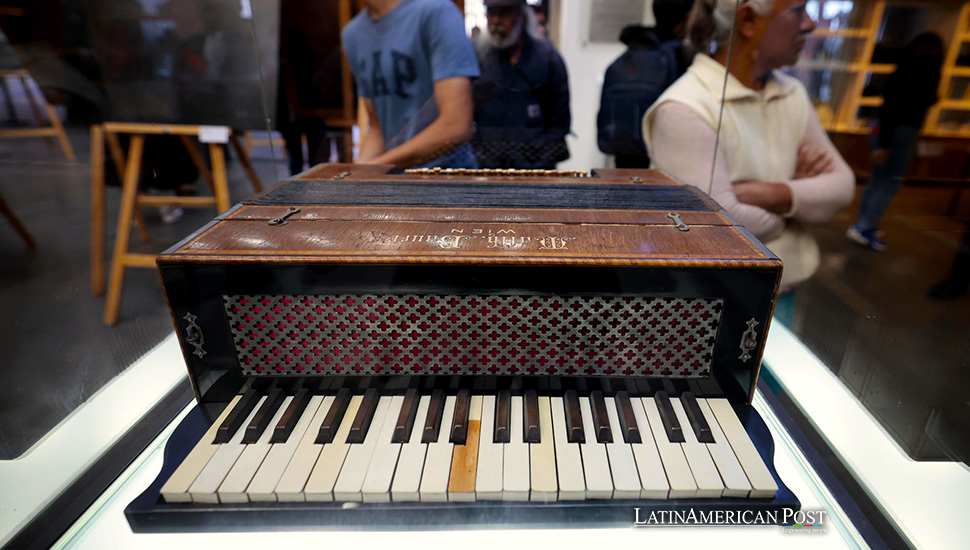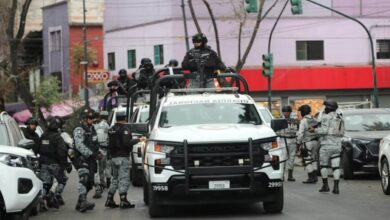Mexico City’s Museum Honors Holocaust Victims in a Call for Peace

At Mexico City’s Museum of Memory and Tolerance, Vice President Milly Cohen reflects on the Holocaust 79 years later, emphasizing its incomprehensibility and the vital role of historical memory in fostering a culture of peace and fighting against oblivion.
A Solemn Remembrance: Honoring Holocaust Victims at the Museum
In a solemn event within the walls of the Museum of Memory and Tolerance in Mexico City, a poignant remembrance took place this Friday for the victims of the Holocaust. Vice President Milly Cohen eloquently described the Holocaust as something “inconceivable” that was “conceived” and, 79 years later, “remains incomprehensible.” The ceremony, part of the International Day of Commemoration in Memory of the Victims of the Holocaust observed every January 27, underscored the museum’s commitment to values education and historical memory as tools to cultivate a culture of peace and combat forgetfulness.
Cohen, in her speech, highlighted the profound paradox of the Holocaust: “The inconceivable was conceived, the unimaginable was imagined, the unthinkable was thought, and the impossible was made possible, yet the incomprehensible remains so.” She posited the Holocaust as a “moral compass,” not just for its historical significance but also as a reminder of “the enormous power of love” demonstrated by the ‘Righteous Among the Nations’ – those who, during World War II, aided Jews persecuted by Nazi Germany.
Marking the 79th anniversary of the genocide, the commemoration included a concert featuring the grandchildren of Salvadoran diplomat and ‘Righteous Among the Nations’ José Arturo Castellanos. They played instruments that once belonged to victims or survivors of the Holocaust. Cohen emphasized the “enormous symbolism” of both the musical instruments and their players, descendants of a man who saved approximately 13,000 Jewish lives during the Holocaust while serving as the consul general in Geneva. However, some reports suggest the number might be as high as 40,000.
Instruments for Hope: Giving Voice to Holocaust Victims
These musical instruments belong to the organization Instruments for Hope, which seeks objects connected to the Holocaust to “give voice” to the victims. These instruments will now become part of the museum’s collection. In an interview, Miriam Feldman, one of the association’s founders, told EFE that when these historically laden instruments played, she heard “the suffering but also the courage, love, and survival stories.”
In the pre-concert conference, Wolfgang Dold, the German Ambassador to Mexico, underscored the importance of continuously reinventing the act of remembrance. He also referred to the International Court of Justice’s decision to issue provisional measures in Gaza, such as ordering Israel to take all actions within its power to prevent acts of genocide. While fully supporting the Court’s work, Dold expressed reservations about part of its analysis, stating, “In our view, the crime of genocide includes an explicit intention to destroy, which we absolutely cannot recognize in Israel’s legitimate defense.”
Conversely, the Israeli Ambassador to Mexico, Einat Kranz, denounced the Holocaust as “the culmination of centuries of latent antisemitism” and warned that “this evil” continues to pose a threat to the world. “This year, more than ever, International Day (…) must serve as a firm reminder of what can happen to a world that stands by,” she stated.
Concluding the event, Cohen warned of the ongoing relevance of “the Holocaust and its educational tools” amidst the “resurgence of polarization and violence against the different.” The ceremony at the Museum of Memory and Tolerance transcends mere commemoration; it serves as a powerful call to action, reminding us that the lessons of the Holocaust are as relevant today as they were nearly eight decades ago.
Lessons for Today: The Crucial Relevance of Holocaust Teachings
In a world still grappling with hate, discrimination, and violence, the teachings of the Holocaust remain crucial. They implore us to remember the past, not just to honor those who suffered and perished but to ensure that such atrocities never happen again. The Museum of Memory and Tolerance, through events like this, continues to play a critical role in keeping the memory of the Holocaust alive, fostering understanding and empathy, and promoting a culture of peace and tolerance.
Also read: Exploring Mexica Culture Through a Landmark European Exhibition
In conclusion, the commemoration at the Museum of Memory and Tolerance in Mexico City is more than just an act of remembrance; it reminds us of our collective responsibility to confront and challenge the forces of hatred and intolerance. As we reflect on the Holocaust’s enduring lessons, we are reminded of the power of memory and education in shaping a more just and compassionate world.





